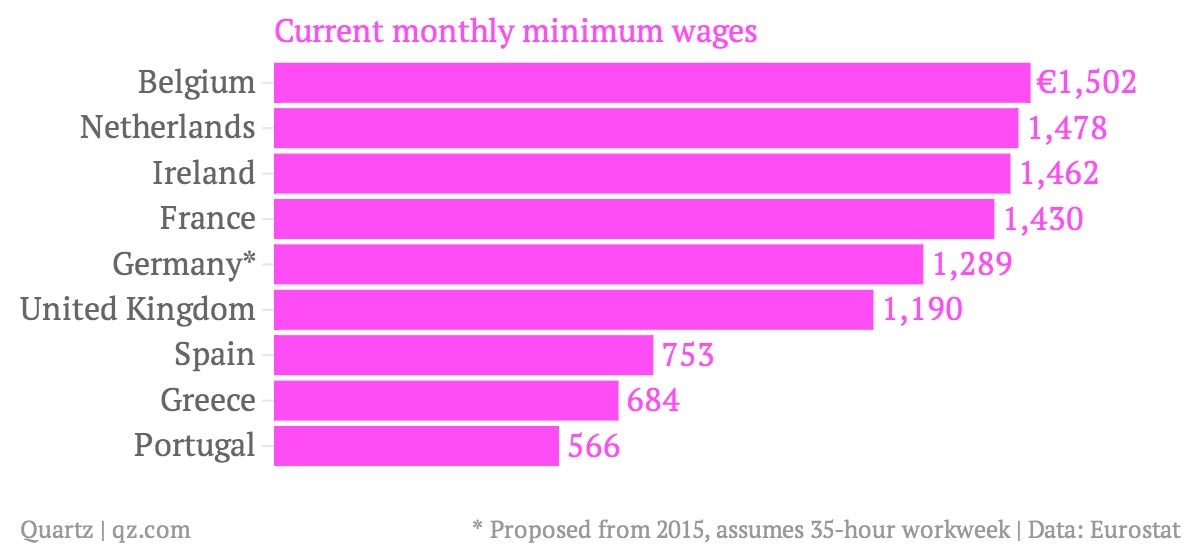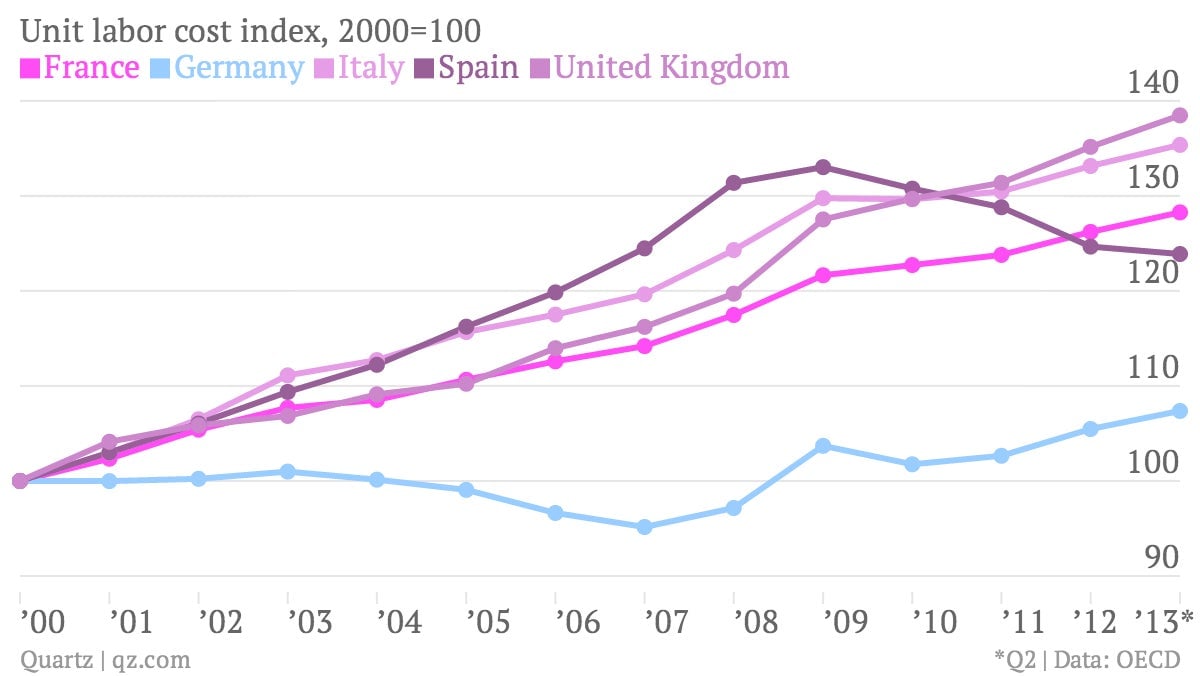A minimum wage in Germany will be a big deal for Europe—and for economics professors
After an all-night bargaining session, early this morning Germany’s two largest political parties announced a provisional deal to form a coalition government. This comes two months after Angela Merkel’s Christian Democrats recorded a resounding victory in the federal election, but fell just short of enough seats to govern alone. Now they will form a “grand coalition” with the left-leaning Social Democrats, as in Merkel’s term as chancellor in 2005-09.


After an all-night bargaining session, early this morning Germany’s two largest political parties announced a provisional deal to form a coalition government. This comes two months after Angela Merkel’s Christian Democrats recorded a resounding victory in the federal election, but fell just short of enough seats to govern alone. Now they will form a “grand coalition” with the left-leaning Social Democrats, as in Merkel’s term as chancellor in 2005-09.
It will take time to analyze every point in the 185-page coalition agreement (pdf, in German). And it’s not yet a done deal; the Social Democrats will put the pact to a vote of party members next month, with passage far from assured. For now, though, one of the most notable initiatives in the agreement is the introduction of Germany’s first-ever minimum wage, a key plank in the Social Democrats’ campaign platform. At €8.50 ($11.57) per hour, the minimum wage would place Germany between France and the UK:

This would address the common gripe among Germany’s neighbors that its export prowess is built on what they consider unfairly low wages. France, in particular, is keen for Germany to introduce a minimum wage. French finance minister Pierre Moscovici recently called the German proposal a sign of a “more cooperative approach to economic policies in Europe.” German labor costs have barely grown since 2000, in stark contrast to Europe’s other major economies:

Economists might also welcome a German minimum wage as a rare chance to observe a real-life economics experiment. Proponents of the minimum wage, both inside and outside of Germany, think that more generous pay will boost German consumers’ spending power, which will lead to them pulling in more imports from the rest of Europe. This could bring about the longed-for rebalancing of the German economy away from exports and towards domestic consumption and investment. But Merkel’s party, German business leaders and some analysts warn that a minimum wage will instead hurt employment and stoke inflation.
In the end, the deciding factor was Merkel’s need to compromise with the Social Democrats in order to form a government. Other labor-friendly concessions her party has agreed to include a lower retirement age, restrictions on employing temporary workers for long periods, and quotas for women on corporate boards. Now it will be up to the Social Democrats to decide whether that’s enough for them.